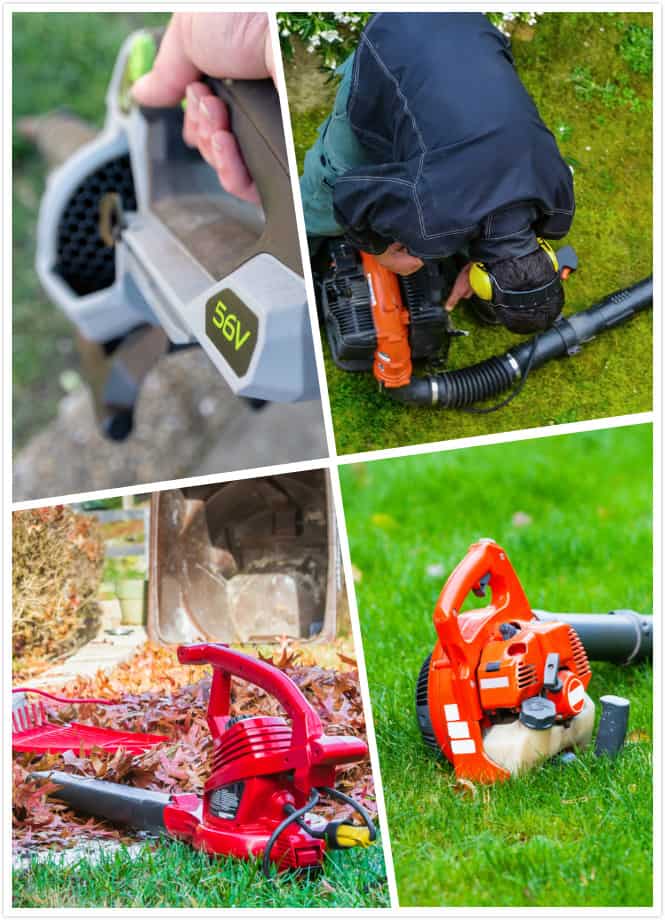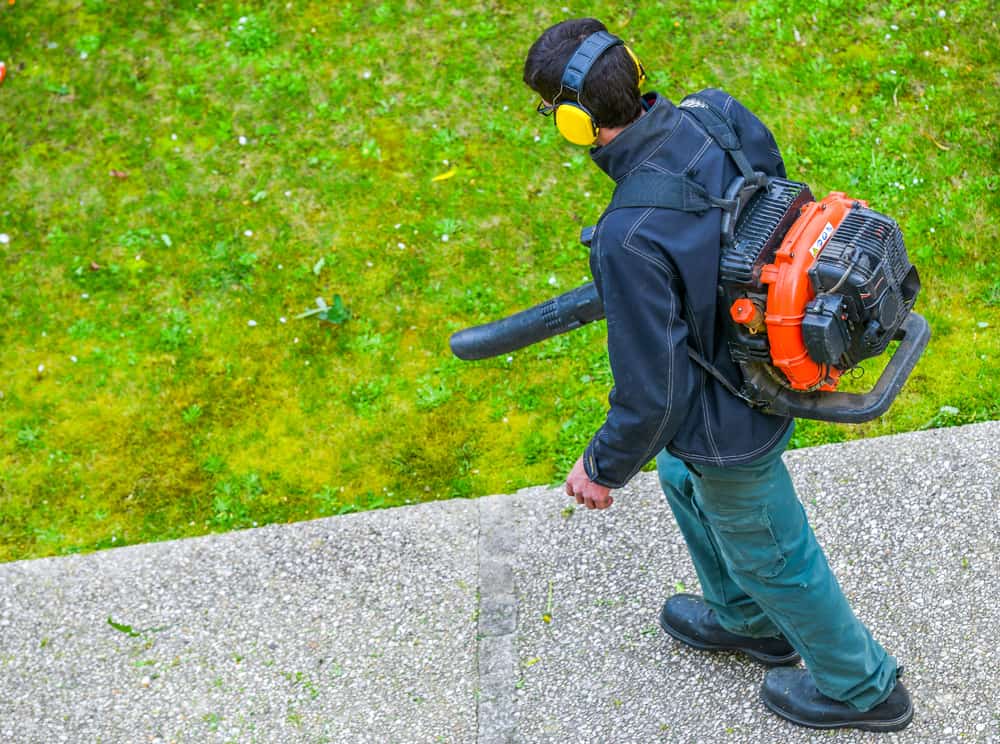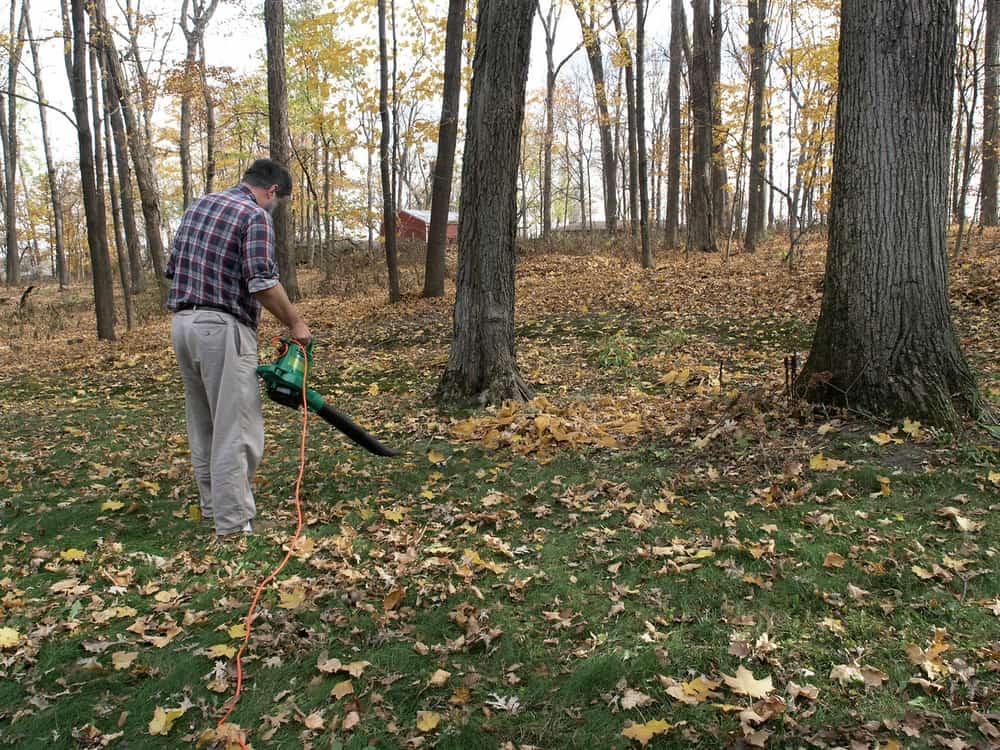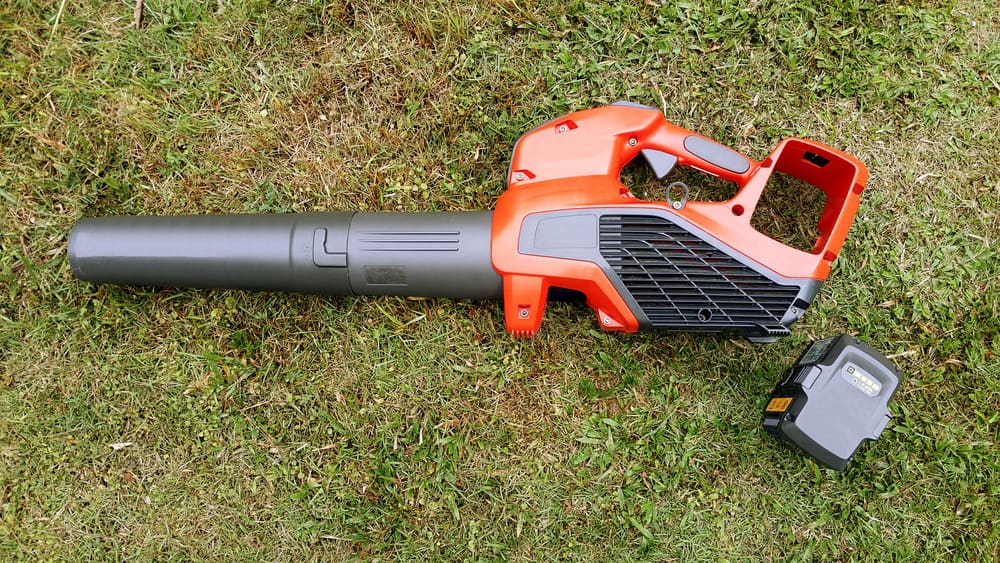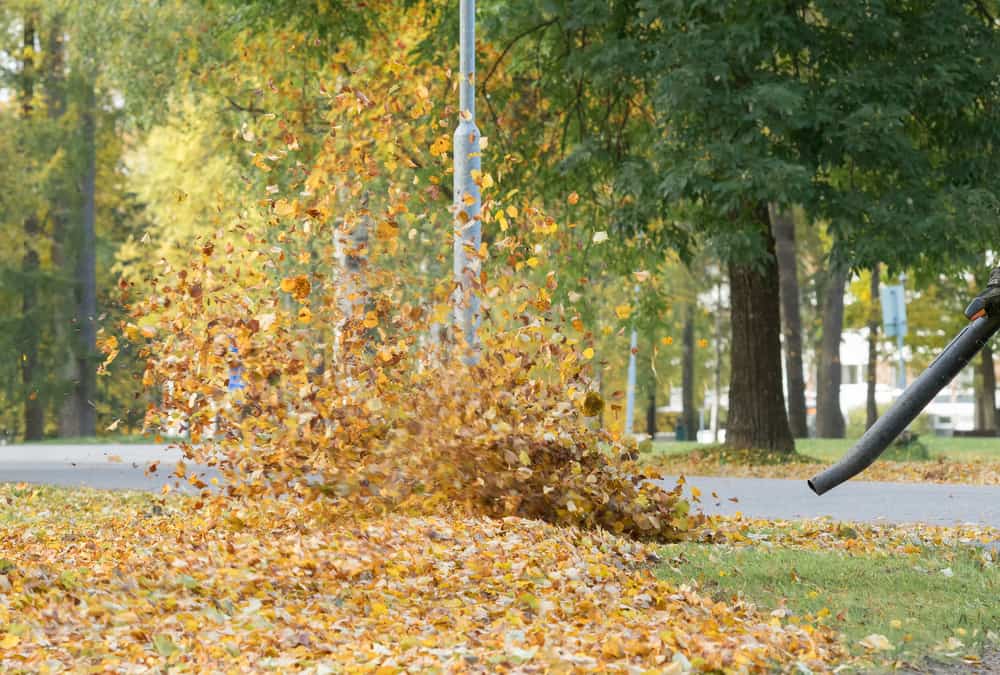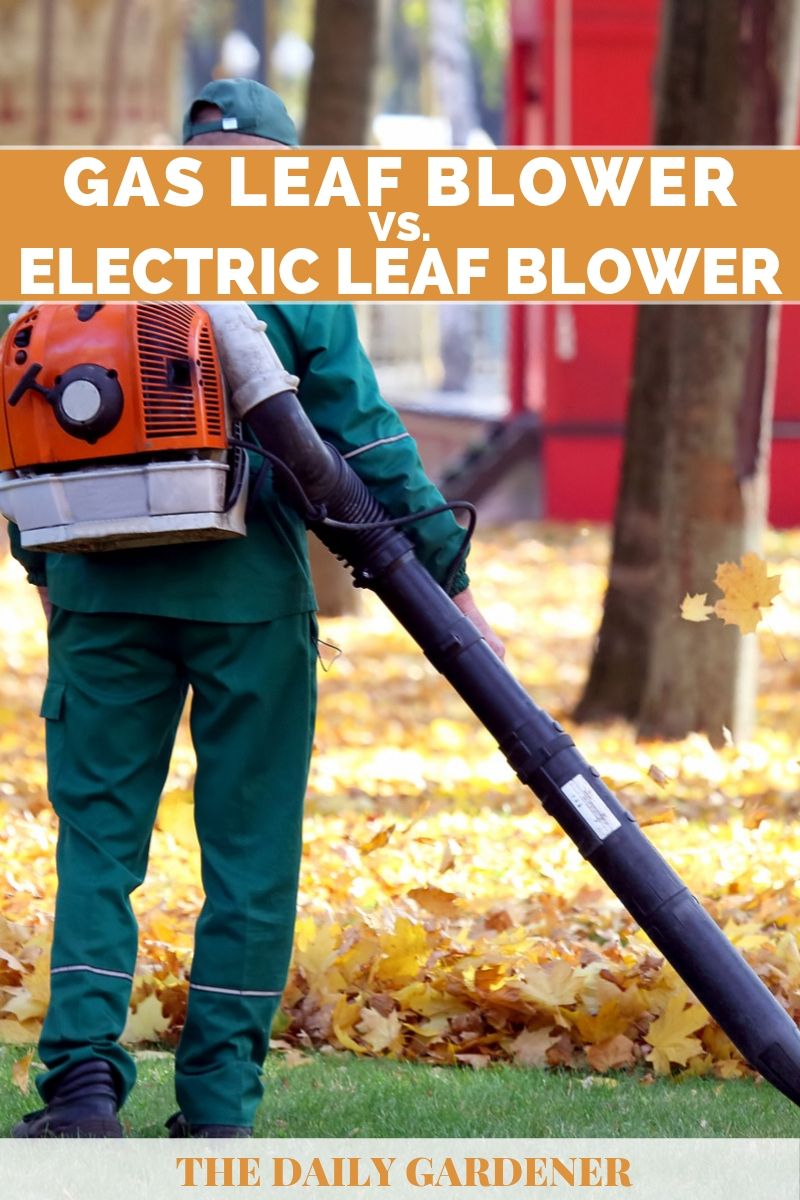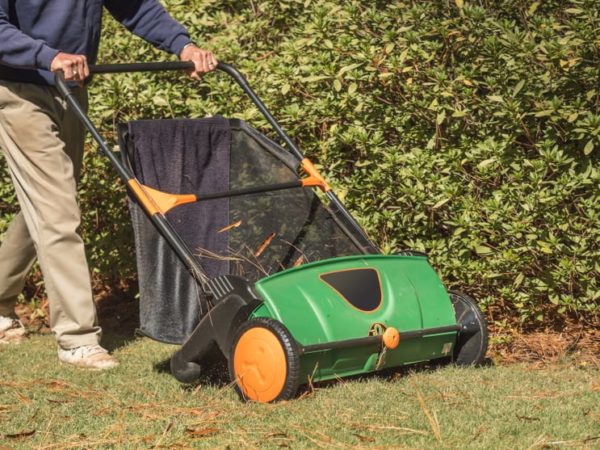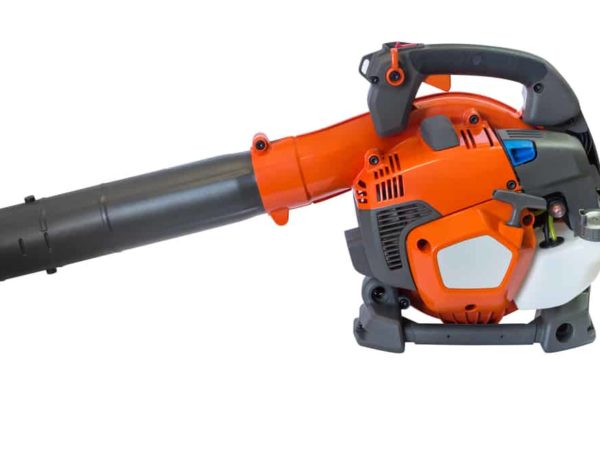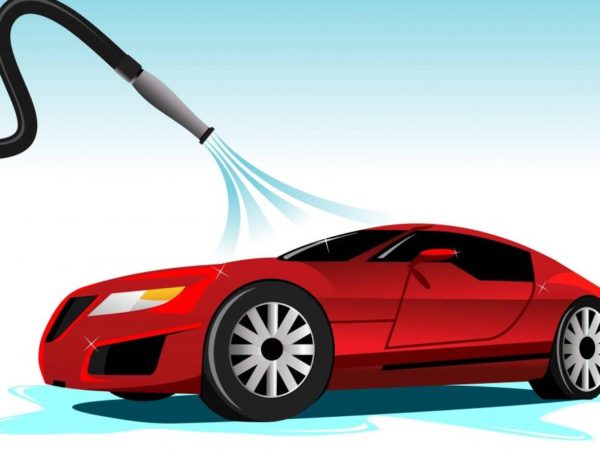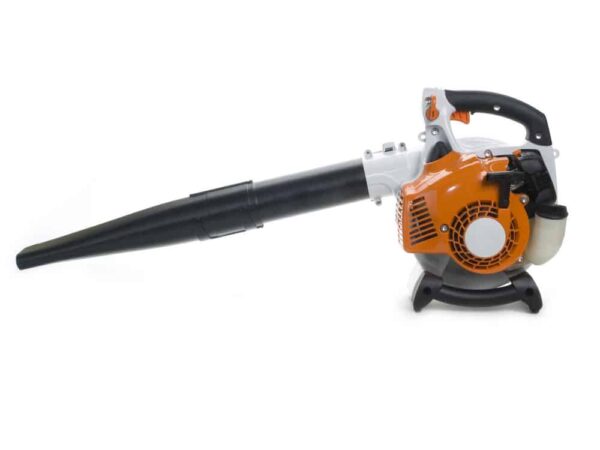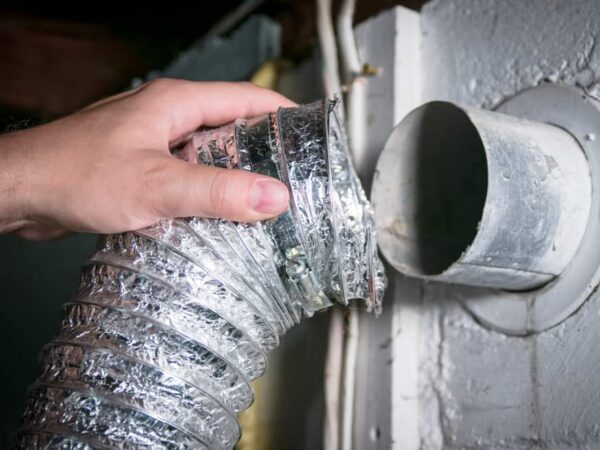When the leaves begin to fall from the trees as summer turns to fall, a good quality leaf blower can be an invaluable tool. Rather than spending endless hours raking leaves into piles, you simply blast through them, finishing the work in a fraction of the time.
Perhaps you’re thinking of buying your first leaf blower or maybe you need to replace one that’s come to the end of its working life. Whatever the reason, if you are looking to invest in a new machine, one of the most important considerations is the gas vs electric leaf blower debate.
Here, we look at the relative advantages and disadvantages of each to help you choose the right type for you.
If you want a preview of some of the things we’re going to be talking about, you can check out this video first.
Table of Contents
What types of leaf blower are there?
Before we look at the pros and cons of gas vs electric, let’s take a moment to remind ourselves of the different types of leaf blower vacuum that are available.
As far as gas-powered models are concerned, there are two main types, 4 cycle leaf blowers, and 2-cycle versions. We’ll look at each type in more detail in a moment.
Whether they are 2-cycle or 4-cycle models, gas leaf blowers also come as either handheld or backpack leaf blower.
Electric leaf blowers also come in two types. You can choose between battery-powered leaf blowers or corded electric models. Again, they come as either handheld or backpack versions, although with electric, the handheld is more common.
Now let’s look at the advantages and disadvantages of each type.
Gas-powered leaf blowers – the pros
The biggest advantage of the gas leaf blower is their power. Gas engines can produce more power than electric motors, and electric leaf blowers can’t match the most powerful gas versions for raw power – although some are now coming close.
The other big positive when using a gas model is the flexibility it offers. As long as you have gas to refill the tank when it runs out, you can use a gas leaf blower anywhere you want and for as long as you want.
This means you are not limited to being able to work somewhere within reach of a power outlet and you don’t have to worry about your battery running out and needing to recharge it.
Gas-powered leaf blowers – the cons
Unfortunately, gas-powered blowers have their drawbacks too.
Gas-powered leaf blowers are noisier than their electric counterparts, and due to the emissions they create, they also cause more pollution too.
They are heavier than electric leaf blowers, and gas engines will also need regular maintenance to keep them in good working order.
Finally, they might cost less up front, but when you factor in the fuel you will need to buy plus any maintenance costs, you can expect a gas leaf blower to cost you more in the long run – even if they do tend to outlast electric versions.
2-cycle vs. 4-cycle leaf blowers
With gas, there is also the question of 2-cycle vs 4-cycle. We don’t need to go deep into the mechanics of how they work here, but we can point out a couple of the main differences.
2 cycle leaf blower tends to cost less, weigh less and produce more raw power for the size of the engine. They are simpler and so tend to last longer, but they are also noisier, more polluting and less efficient.
4 cycle leaf blower is heavier, more expensive and produces less power. However, they are more efficient, slightly less polluting and don’t make as much noise.
Note also that 2-cycle engines require fuel that is a mix of gas and oil – with 4-cycle engines, the oil and gas are added separately, so there is no need to mix them yourself.
Electric corded leaf blowers – the pros
Electric corded leaf blowers have some distinct advantages over gas-powered ones.
Since they don’t rely on a combustion engine for power, they are usually much quieter. They don’t cause pollution and they are generally lighter and easier to handle.
Since they are powered by electricity, you don’t need to worry about storing gasoline at your home. Electric units also require far less maintenance since you don’t need to service the engine.
Electric corded leaf blowers – the cons
Electric corded models have one big disadvantage – the cord itself.
Since you have to plug a corded blower into a power outlet, you are limited to working only within the range of the cord. You can use an extension, but your range will still have a limit.
Coupled with this is the fact that dragging a cord behind you is not the most practical way to work. Cords can get in the way and restrict your mobility, especially when working with a long extension.
Battery-powered leaf blowers – the pros
Battery powered leaf blowers don’t suffer from the same inconveniences caused by a cord, meaning you have total flexibility over where you can use it. They have the advantages of being quieter than gas as well as being pollution free, and they are also lighter than gas models.
Battery-powered leaf blowers – the cons
Of course, the big problem with using battery power is that its life is limited. Some models may only give you 15-30 minutes of use before you need to stop to recharge. You can mitigate this by buying a spare, but this can be expensive.
Furthermore, although some battery-machines can produce good levels of power, they still can’t compete with the most powerful gas powered blowers.
Which one is best?
There is no “best” leaf blower, only the most suitable for the circumstances.
If you need raw power to blast through big jobs and significant quantities of leaves, gas power is probably the way to go. Gas might be a bit over-the-top for home use if you only have a small yard, but for commercial-grade use, they are the go-to tool.
Electric blowers are a better choice for casual home users who don’t need to deal with such large piles of leaves. If you only have a small yard and don’t need the power of a big, noisy, dirty gas monster, a cleaner, more elegant electric tool might be a better option.
If you decide to go for electric, you then need to choose between corded or cordless. The choice is up to you, but the main question is whether you will always be operating close to a power outlet or not. Beyond this, which one you pick is a matter of personal preference.
All kinds of blowers – make sure you choose one suited to your needs
There are several kinds of leaf blowers, both gas-powered and electric, and all have their pros and cons. The most important thing to think about is what you really need it for. This will help you narrow down the choices and pick the best model for you.
Don’t forget to pin it!



